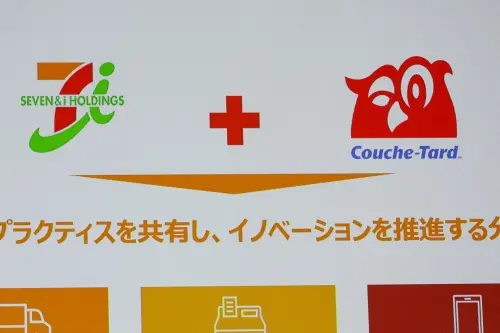Convenience store chains Couche-Tard and Seven & i are attempting to divest thousands of stores they collectively own in North America to alleviate regulatory concerns ahead of a potential merger. They face an early challenge in attracting rival suitors for these stores.
Experts and sources familiar with the situation suggest the two operators may struggle to generate interest from other convenience store chains, which might be hesitant due to potential antitrust risks associated with the deal. Seven & i owns the 7-Eleven brand, which includes over 12,000 U.S. locations.
Currently, most interested buyers appear to be private equity firms. This poses a challenge for Couche-Tard and Seven & i, as U.S. antitrust regulators generally prefer strategic buyers who are committed to long-term ownership rather than financial firms focused on short-term returns.
The U.S. Federal Trade Commission tends to favor acquirers who can operate divested stores as viable competitors. "The agency will have a strong preference for a strategic buyer," said antitrust partner Michio Suzuki.
The divestiture package proposed includes more than 2,000 U.S. locations. However, experts note that there is no precedent for private equity firms owning convenience stores following significant mergers. Though financial acquirers have successfully purchased divested grocery and dollar stores, they have a mixed track record in managing these assets effectively.
For instance, when Dollar Tree acquired Family Dollar for around $9 billion in 2015, the FTC required the divestiture of hundreds of stores. Investment firm Sycamore Partners was chosen to buy 330 locations, but it sold them two years later to Dollar General due to difficulties in operating them as an independent business.
Sources close to Couche-Tard and Seven & i suggest that the divestiture package includes competitive stores in various states, making them suitable for private equity management. They have received preliminary interest from buyout firms eager to explore a nationwide convenience store operation. However, some firms remain cautious about bidding for assets associated with an incomplete merger.
Recent years have seen retail mergers face increased scrutiny from antitrust regulators globally. The unsuccessful U.S. grocery megadeal prompted Couche-Tard and Seven & i to preemptively reduce their combined business size in North America before continuing merger discussions.
Seven & i wishes to avoid a situation reminiscent of the failed Kroger-Albertsons merger. They've received a notice from the FTC warning of a potential investigation, which is uncommon before a deal is formally agreed upon.
The Kroger-Albertsons deal, announced in 2022, faced numerous challenges from U.S. antitrust authorities, and proposals to divest stores to facilitate the merger were unsuccessful. The FTC rejected the proposed buyer as credible and dismissed the divestiture package as inadequate.
"Any target in a large-scale retail-store merger is going to take notice and be very cautious after that," noted lawyer Alex Livshits.
In light of these developments, Seven & i has resisted Couche-Tard's acquisition attempts since August, citing the recent grocery merger as a cautionary tale.
In response, Seven & i proposed early joint regulatory efforts to address potential antitrust concerns, to which Couche-Tard agreed. Seven & i is the leading U.S. convenience store operator with approximately 12,650 locations, while Couche-Tard ranks second with around 7,100. A merged entity would substantially surpass the next largest competitor, Casey's.
There is a risk associated with presenting a complete divestiture to a third party that is binding, which could lead to complications if regulators disapprove of the selected buyer or request further divestitures.
Typically, companies pursue regulatory approval after finalizing deals, but some experts believe the failure of the Kroger-Albertsons merger provides crucial lessons for companies aiming for successful regulatory approval in future retail mergers. Couche-Tard and Seven & i's proactive strategy allows them more time to persuade regulators regarding their merger.
